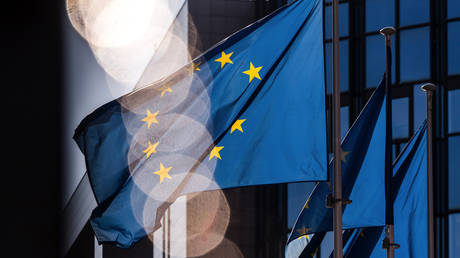30 years ago, Jacob Rothschild predicted a global currency by 2018
from Fellowship Of The Minds:
 On March 6, 1991, in a speech to Congress then-President George H. W Bush famously and very prematurely declared the beginning of a “new world order” following the Gulf War — the U.S.-led expulsion of Iraqi forces from Kuwait:
On March 6, 1991, in a speech to Congress then-President George H. W Bush famously and very prematurely declared the beginning of a “new world order” following the Gulf War — the U.S.-led expulsion of Iraqi forces from Kuwait:
“Now, we can see a new world coming into view. A world in which there is the very real prospect of a new world order…. A world where the United Nations, freed from cold war stalemate, is poised to fulfill the historic vision of its founders. A world in which freedom and respect for human rights find a home among all nations.”
Three years before in 1988, in an essay in The Economist (which is partly owned by the Rothschild family), Lord Jacob Rothschild, now 82, predicted that in 2018 the world would be united under a single currency, the phoenix.
Under the global monetary union, called the “phoenix zone,” administered by a global central bank, national economic boundaries would dissolve. “Tight constraints” would be imposed on national governments, and there would be no national monetary policy. In effect, nation-states would lose their economic sovereignty, supplanted by a global government — a new world order — in fact if not in name.

Thanks to The Free Thought Project, below is an excerpt from Jacob Rothschild’s article, “Ready for the Phoenix,” The Economist, January 9, 1988, pp. 9-10.
Ready for the Phoenix
Thirty years from now, Americans, Japanese, Europeans, and people in many other rich countries, and some relatively poor ones will probably be paying for their shopping with the same currency. Prices will be quoted not in dollars, yen or D-marks but in, let’s say, the phoenix. The phoenix will be favoured by companies and shoppers because it will be more convenient than today’s national currencies, which by then will seem a quaint cause of much disruption to economic life in the last twentieth century.
At the beginning of 1988 this appears an outlandish prediction. Proposals for eventual monetary union proliferated five and ten years ago, but they hardly envisaged the setbacks of 1987. The governments of the big economies tried to move an inch or two towards a more managed system of exchange rates – a logical preliminary, it might seem, to radical monetary reform. For lack of co-operation in their underlying economic policies they bungled it horribly, and provoked the rise in interest rates that brought on the stock market crash of October. These events have chastened exchange-rate reformers. The market crash taught them that the pretence of policy co-operation can be worse than nothing, and that until real co-operation is feasible (i.e., until governments surrender some economic sovereignty) further attempts to peg currencies will flounder.
The New World Economy
The biggest change in the world economy since the early 1970’s is that flows of money have replaced trade in goods as the force that drives exchange rates. as a result of the relentless integration of the world’s financial markets, differences in national economic policies can disturb interest rates (or expectations of future interest rates) only slightly, yet still call forth huge transfers of financial assets from one country to another. These transfers swamp the flow of trade revenues in their effect on the demand and supply for different currencies, and hence in their effect on exchange rates. As telecommunications technology continues to advance, these transactions will be cheaper and faster still. With unco-ordinated economic policies, currencies can get only more volatile.…
Read More @ FellowshipOfTheMinds.com



